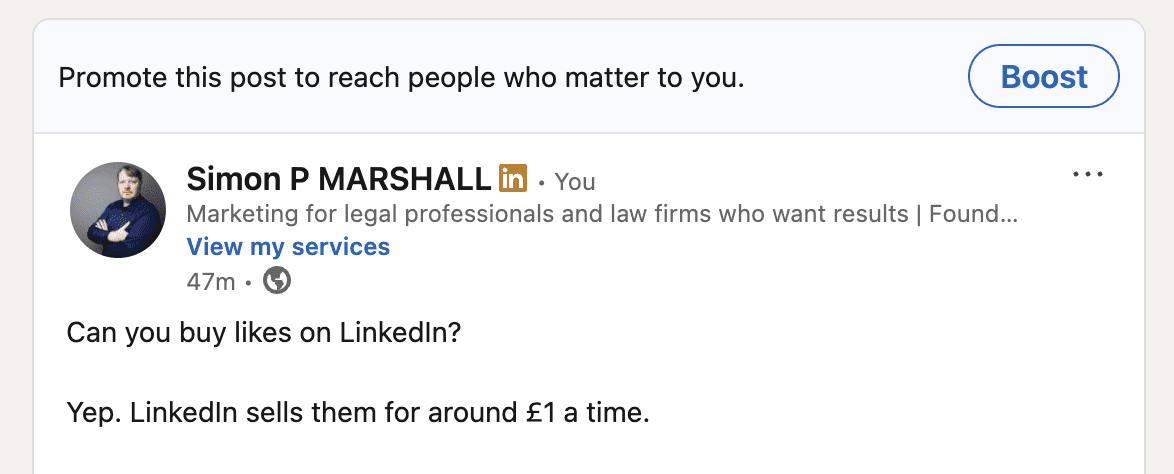Can an algorithm which is beyond your control – affect your revenue? What can you do about it?
I was eating at Caribbean Croft yesterday lunchtime – great food and great service – you should go. Tripadvisor agrees, which is how we came to be there as it had consistently ranked in the top 10 restaurants in Bristol for months past.
In December last year. I took a snapshot of the top 10 restaurants in Bristol and, for my wife’s birthday (in January) created the Fourth Thursday club, a series of bookings at the very best ranked restaurants in Bristol, on the fourth Thursday of almost every month of 2018.
We missed Caribbean Croft in February due to some other commitments but we finally made it there for lunch yesterday. Like I said, the food there is amazing and great value and I recommend that you all go. But this is not a restaurant review.
We spoke to the waitress and told her what we were up to and she thought it was cool and asked us how we’d chosen the restaurants and that’s when we mentioned Tripadvisor.
“Oh, well we’re not in their top 10 anymore. They changed their algorithm.”
So the first thing to say is that I think Carribean Croft should be in the top 10 restaurants in Bristol. But that’s just my opinion.
And the second thing to say is: Wait: an algorithm?
Put simply, we would not have been eating lunch there yesterday if it weren’t for the original top ten ranking. If we’d taken the snapshot after March this year, Caribbean Croft would not have made the cut.
I had a heap of questions when I left the restaurant, including:
- Did TripAdvisor let owners know that the algorithm was changing? (Quick research tells me that it did not – at least until after the event and even then it has been pretty opaque about it); and
- Why would TripAdvisor want to do this? My guess would be that it wants to rank restaurants at the top that are performing well recently. Otherwise, no-one new is likely to ever crack the top tier. Tripadvisor’s algorithm may, for example, reward the last 100 ratings with more of a weighting, or they may give extra weighting to a 5 rating on a day in which everyone else got lower ratings (because of external factors which affect the public’s general mood e.g. the day after the national football team loses in the World Cup).
Even for those of us not in the restaurant business, it’s a stark reminder that marketing people:
- can’t assume that tomorrow looks like more of today;
- need to keep on top of/continually analyse our sources of business; and
- need to stay on top of how those sources work and any planned changes to how they work so that we can judge how it will affect our future revenues and plans.
So what does this mean for law firms?
Well, first, to my knowledge, no law firm’s restaurant is yet ranked on Tripadvisor. (Although if there is one, please can I get an invitation to come and review it?)
Second, it means that law firms need to continually analyse the data about their work sources and make sure that they are not given the Tripadvisor treatment. And they need to stay on top of any upcoming changes to methodology so that they can retain or improve their rankings.
How can law firms do that?
Step 1: Analyse and include and weight data sources
The first thing to do is make sure that you have a dashboard of data lined up for analysis. What you don’t measure, you can’t manage. So if you can think of a good data source across the marketing and sales mix, grab it and see what it tells you. Here are some ideas of sources:
- Google Analytics
- The analytics in your website CMS (eg WordPress)
- Press cuttings
- Press reach
- Profiles in which clients name you
- Nisus and Acritas brand and client surveys
- Tweetreach/social reach
- Bitly
- Revenue
- PEP
- Percentage of total panel spend
… and so on. I can think of dozens more free data sources which are useful which law firms have regular access to.
Some of those sources are internal, some are external.
Some are straight facts and figures. The majority are not.
They all tell part of the broader story of your firm’s success.
Measure them if you’re not already doing so.
Step 2: The game keeps moving forward: yesterday’s stats and methods may not work today.
Google changes its algorithm and publishes some idea of how those changes may impact your rankings (for rankings, read ‘new business’). If the change is big enough, they often warn you in advance so that you have time to modify your approach and not suffer a fall from the top of the rankings. You should check out this amazing blog of changes to Google’s algorithm, as well as this equally amazing top 200 ranking factors Google uses to rank your website.
Your finance team changes how it reports the firm’s LLP report. Most years have a different set of notes and tweaks to the accounts.
LinkedIn changes what data it shares via its API, so you can’t even get at some of the source data you used to be able to.
So, when you come to analyse all this information, you need to be sure that you caveat your findings with changes to method/sources etc along the way. You need to diarise to regularly look at the effects of those changes on your statistics. You need to check your own assumptions, time and again.
Step 3: share your findings so that it can be used as the basis of your plans
When I worked in the restaurant trade, as well as revenue/covers/daily ingredients usage that we’d served, we also used to record the weather and any local events in the notes against the day’s performance. After a year of doing this, we got really good at using past data on dates/holidays/events to predict future requirements. It wasn’t perfect, but it was better than not analysing the data. The point was that it was available to all of us to use to make the restaurant run more smoothly and efficiently.
Democratising data within law firms may well be some way off. But if you’re not yet using data to inform both your internal and external client relationship meetings or your sector or departmental plans, then let us know as that’s something that we have a track record of doing at TBD.
In summary…
- Rankings on Google and Tripadvisor and a whole heap of other sources provide traffic.
- Traffic provides an opportunity to sell or market your service.
- Less traffic means fewer leads means less potential revenue.
Client feedback (from both lawyers and their clients) tells us that they love to have a visual approach to data. Let us know if that’s something you’d like to work on together.






